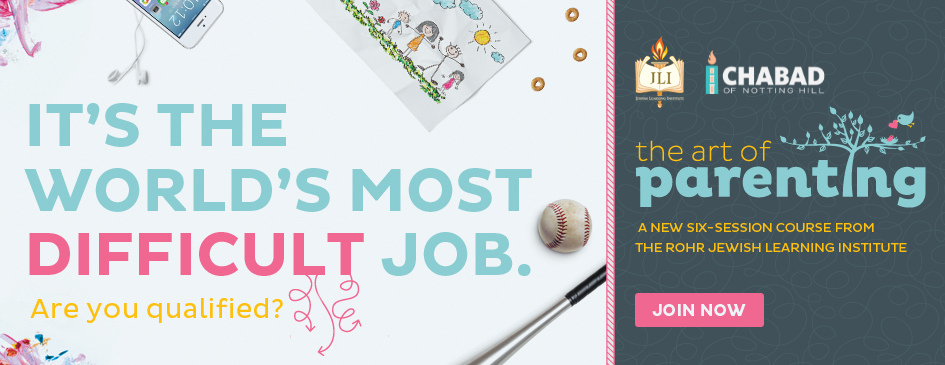
The Art of Parenting
A new Six session course from the jewish learning institute
IN PERSON & VIA ZOOM
As parents, we worry about the well-being of our kids; about their future, and about our role in shaping it. How do we keep them safe, while encouraging their independence? When should we motivate them by incentive, and when by establishing firm consequences? And how do we build their self-esteem to prepare them mentally and emotionally for the long road ahead?
In The Art of Parenting, we scale the challenges that face us as parents and explore timeless insights from Jewish wisdom to instill values, foster independence, and ensure the long-term success and emotional well-being of our children.
How: In person recommended (Zoom option also available)
When: 6 Tuesdays, May 16 - June 20 2023
8-9:30pm
Hot drinks & Refreshments will be served.
Where: Address in W2 provided upon registration.
Cost: £60 (Includes course book)
Couples & Bring a friend: £45 per person (Includes course book).
Not sure it’s for you? Try the first lesson for free!
Full & part scholarships available. Please see registration page or be in touch for more info.
Course author: This course is developed by JLI, the world’s preeminent provider of Jewish learning.
Each lesson is well researched, highly engaging, interactive and includes cutting edge media.
Course Instructor: Rabbi Shneur Wineberg, Director, Chabad of Notting Hill
See below for the full course outline
COURSE OUTLINE
Lesson One - May 16
Parent, or "Peer Ant"
Properly parented or not, with the passage of years children grow up and become adults. What role do parents play in this process? What real difference does effective parenting make?
How do parents instill within their children a healthy respect for authority? How do they get them to look up to them so they play an influential role in their lives? And how do they do this without compromising the child’s sense of emotional security that comes from feeling unconditionally loved and accepted?
Lesson Two - May 23
Be Firm, or Forgiving?
Parenting can be a catch-22 situation. If you're too forgiving, your child may lack direction. If you're too strict, they may look elsewhere for support in their time of need. In this lesson, you'll examine the pros and cons of a plethora of parenting models to find a balanced approach.
Lesson Three - May 30
Grant Freedom, Responsibly
While parents encourage children to think independently and make their own choices, there are times when children need to be receptive of parental authority. For inexperienced, young decision makers, too many freedoms can lead to irresponsible behavior and the development of narcissistic tendencies. How is a parent to know where to draw the line?
This lesson will explore the Jewish parenting model that evolves as the child ages, providing clear parental guidance and direction for younger children, while gradually incorporating more freedoms as children mature and are able to assimilate the values they were taught. It also discusses how parents can be attuned to the development and unique needs of each child, to know when to graduate to the next stage effectively
Lesson Four - June 6
Cultivating Healthy Self-Esteem
What is the most productive way to build a child’s self-esteem? How can parents teach children the rules of life without stifling their creativity? And how do they help their children recognize and develop their unique talents and abilities? This lesson introduces a variety of proven techniques for parents to guide children toward developing a healthy self-concept.
Lesson Five - June 13
Using the Carrot and the Stick
Praise and reprimand are powerful tools.
What is the correct way to discipline? How can a parent know when to use the carrot and when to use the stick? And how do they go about it in a manner that is most conducive to ensuring the healthy development of their children?
Lesson Six - June 20
Impart a Toolkit for Life
The tools your child needs to succeed include a great education, strong values, and an identity they are proud of. What role does each parent play in providing these? And how can you help your child discover the joy in Judaism and a proud sense of Jewish identity?

